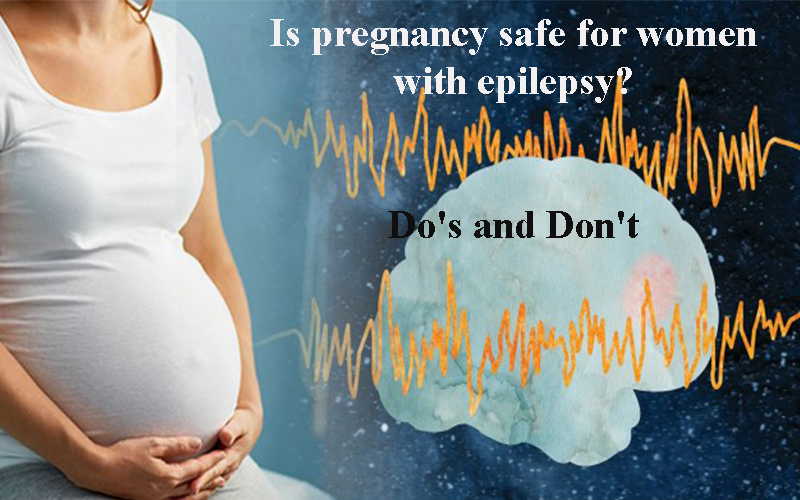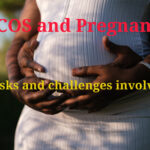Is pregnancy safe for women with epilepsy? Navigating Pregnancy with Epilepsy could be a challenging task. In pregnancy, there is a 20 to 30% increased risk of getting a seizure as compared to non-pregnant individuals.
Pregnancy is a special period for any woman. It is a dream of many women to give birth to a child, and is the time when a woman can nourish their baby to provide them good health. But for women suffering from Epilepsy, it could be a challenging task.


What is Epilepsy?
Epilepsy is a medical condition in which the electric signals sent by brain become scrambled, which may even lead to a sudden burst of electrical activity. Epilepsy causes seizures in the human body. In the majority of cases, it’s hard to find the exact reason that causes Epilepsy.
Epilepsy in pregnant women:
Epilepsy in women is kind of a social stigma. In India epilepsy affects around 55 lakh people out of which 25 lakhs are women and among them 13 lakh women come under the reproductive age group. So, pregnant women may experience mild changes because of epilepsy. In pregnancy, there is a 20 to 30% increased risk of getting a seizure as compared to non-pregnant individuals.
Anti-Epileptic drugs during pregnancy:
Certain drugs are deleterious in pregnancy, as they can cause major congenital malformations. Drugs like Phenobarbitone, Phenytoin, Sodium Valproate, which are used as anti-epileptics can cause congenital malformation in the fetus. Such anti-epileptic drugs are needed to be avoided.
Anti-epileptics like Levetiracetam, Lamotrigine, and Oxcarbazepine are preferred in pregnancy. There are certain changes that happen in women’s metabolism because of these drugs during pregnancy. In the second and third trimester of pregnancy, there is an increase in hem dilution, that is, increase in water content in the blood. If the absolute concentration of these antiepileptics reduces, then there is a tendency for increased seizure during pregnancy. The reasons for these changes are sleep depression and anxiety during pregnancy in the second trimester and third trimester. There is increased hem dilution causing reduced levels of drugs.
There is an increase in elimination of these on the body of women who have remained seizure free one year prior to pregnancy. The chances of them getting a seizure during pregnancy is less. So it is advisable to plan pregnancy if there is a seizure free interval of at least one year. It is suggested to consume Folic acid supplementation in women who are planning pregnancy. This is because this is this will prevent neural tube defects, which can happen due to certain anti epileptics neural tube, which is formed within the first 24 to 28 days of gestation. So, by the time you know that you’re pregnant, the neural tube is already almost formed. So it is advisable to start taking folic acid supplementation when you’re planning pregnancy.
It is also advisable to avoid sleep deprivation during pregnancy. Any episodes of hyperemesis where either excessive vomiting needs to be treated immediately because when you get excessive vomiting, your chances of medicine getting absorbed into the body is less.
If, women are on polypharmacy under consultation of neurologists and if seizures are under good control, it is advisable to reduce the number of drugs less or the number of drugs lesser rather than some side effects. It’s also advisable to lower the dosage of drugs of the anti-epileptic, on which the patient is. So, lowered dose of drugs can lessen the chance of side effects, but this has to be done under neurologist’s advice
Men with epilepsy also have little higher chance of infertility compared to non-epileptics. It is advisable to change the medicines like sodium valproate which can cause congenital malformation or can cause infertility, safer drugs as prescribed should be taken on time as we advise for any epileptic patients, so drug compliance, avoiding sleep deprivation, using correct dose of medicines and taking it on correct time is important.
Smoking and alcohol should be avoided. There are certain drugs which are enzyme inducers. It is also advisable to give vitamin K to the new-born after delivery to prevent bleeding tendency.


Dr. Rohit Pai
Consultant Neurologist
KMC Hospital, Mangalore











